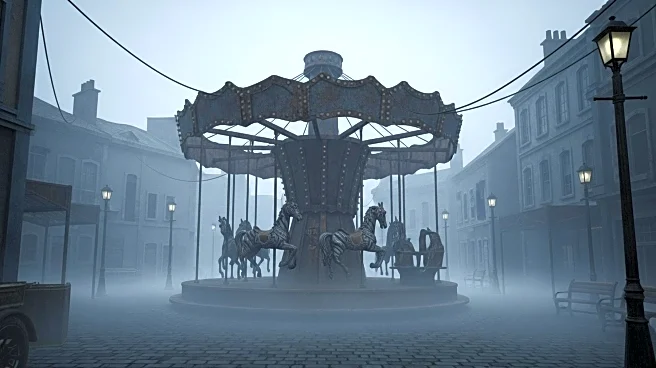What's Happening?
Silent Hill F, the latest installment in the Silent Hill series, has been critiqued for its focus on combat mechanics, which some players feel detracts from the psychological horror elements that the franchise is known for. The game features a complex combat system with various mechanics such as counterattacks, focus mode, and weapon degradation. While players can sometimes avoid combat, certain areas require defeating enemies to progress. This shift towards action-oriented gameplay has led to comparisons with other horror games like Resident Evil, which traditionally emphasize combat over psychological tension.
Why It's Important?
The criticism of Silent Hill F's combat focus highlights a broader trend in the gaming industry where franchises known for specific genres or styles are evolving to incorporate more action elements. This shift can impact the core fanbase, who may prefer the original style of gameplay. For Silent Hill, a series celebrated for its psychological horror, the increased emphasis on combat may alienate long-time fans seeking the atmospheric and narrative-driven experiences of previous titles. The game's reception could influence future development decisions and the direction of the franchise.
What's Next?
As feedback from players continues to emerge, developers may consider adjusting the balance between combat and horror elements in future updates or installments. The reception of Silent Hill F could prompt discussions within the gaming community about the importance of maintaining genre integrity while innovating gameplay mechanics. Developers might explore ways to integrate player feedback into the design process to better align with fan expectations.
Beyond the Headlines
The evolution of Silent Hill F reflects broader industry challenges in balancing innovation with tradition. As gaming technology advances, developers face pressure to enhance gameplay mechanics, sometimes at the expense of narrative depth. This tension between action and storytelling raises questions about the future of genre-specific games and the role of player feedback in shaping game development.









